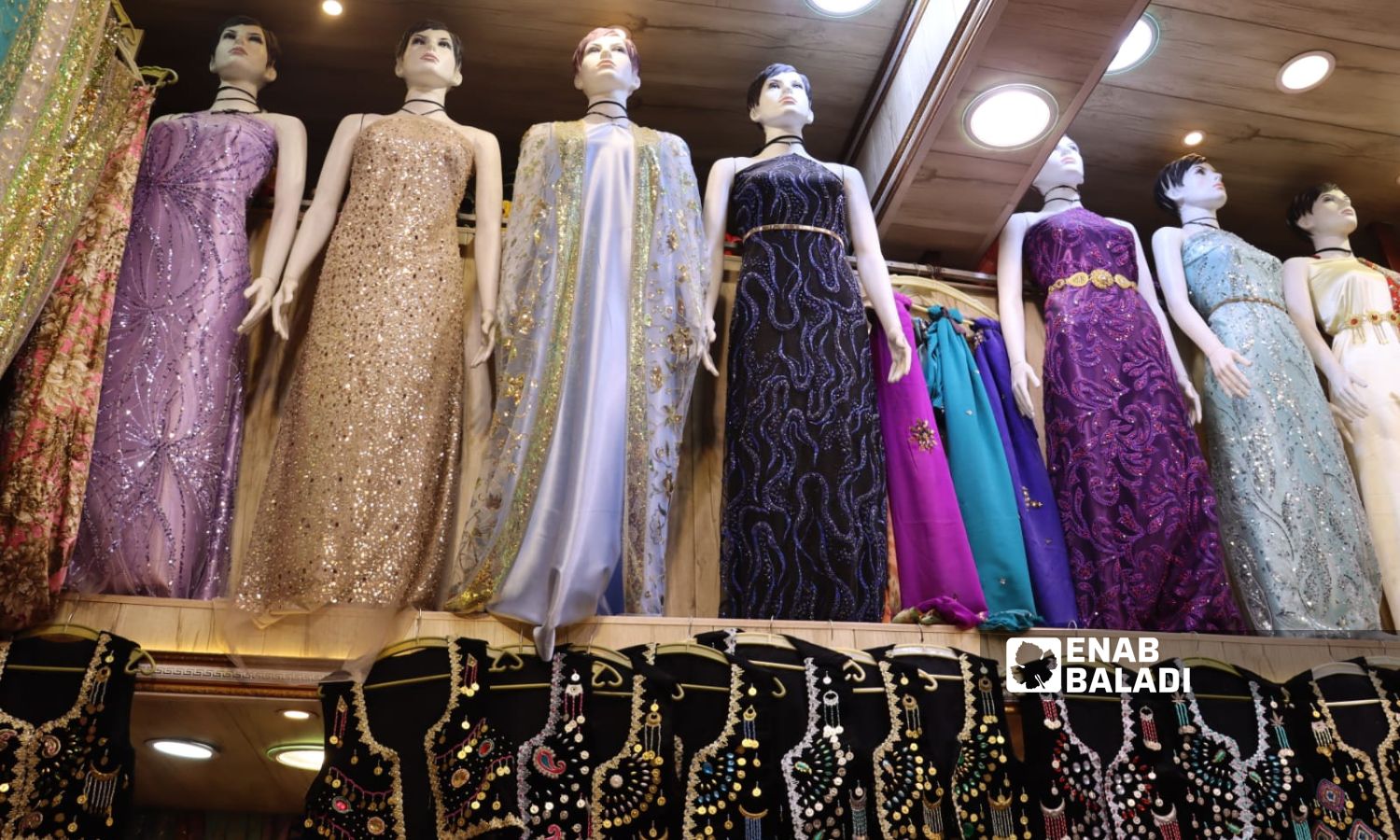



The demand for purchasing or tailoring the distinctive Kurdish attire, which is part of the Nowruz festival celebrations, has declined in al-Hasakah, northeastern Syria, coinciding with March 21, due to high prices.
The Kurdish attire is one of the symbols and rituals of the Nowruz festival for Kurds in Syria and this year the matter was limited to altering previous clothes, considering wearing them as they are, or buying children’s clothing less than before.
Rocheda Tammo (38 years old), a resident of Qamishli city and working in the field of women’s tailoring, told Enab Baladi that there is a noticeable decline in orders for Kurdish dresses designated for Nowruz this year compared to previous years.
She added that this year she only recorded a few orders, and exceptionally one customer asked her to tailor several gowns to send to her sister in Europe.
Tammo mentioned that it is customary each year for the demand to increase one month before Nowruz, when women and girls would come to her to reserve their turn for tailoring clothes, and her shop and home would be crowded with customers.
Regarding the costs of tailoring the garments, Tammo said they are high due to the complexity of the models and details that require additional effort; some models require embroidery and others necessitate handwork, and the cost of tailoring dresses ranges from 30 to more than 100 US dollars, depending on the design and details in addition to the cost of the fabric which is separate from the tailoring price.
The US dollar is equivalent to 14,450 Syrian pounds in al-Hasakah governorate, according to the S-P Today website, which specializes in currency exchange rates.
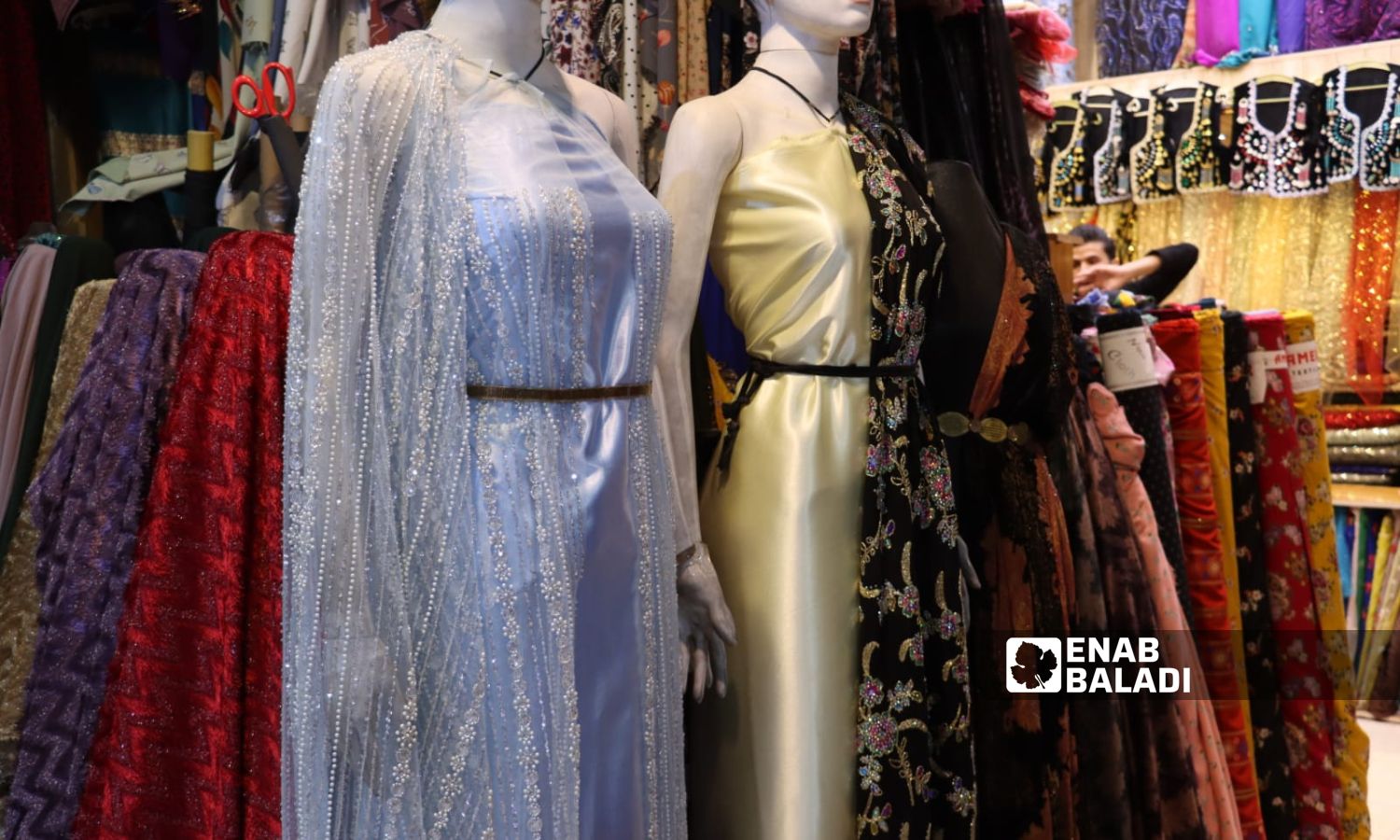
Kurdish clothes in one of Qamishli city’s shops, northeastern Syria – March 18, 2024 (Enab Baladi/Rita Ahmad)
The movement in fabric sales and purchase was also weak, according to Shukri Khallo, who owns a fabric shop in Qamishli city market, and he mentioned that there was a decline this year compared to 2023.
Speaking to Enab Baladi, he said the decline is due to the high prices of fabrics and the weakened purchasing power of the residents, pointing out that fabric prices range from 100,000 to 500,000 Syrian pounds per meter, and some fabrics are sold in US dollars, due to their quality and material.
He added that the reason for the high fabric prices is due to the difference in the value of the pound against the dollar, as traders buy their merchandise in dollars, indicating that the fabrics are imported and shipped from the Kurdistan Region of Iraq, which makes shipping and transportation expenses costly as well.
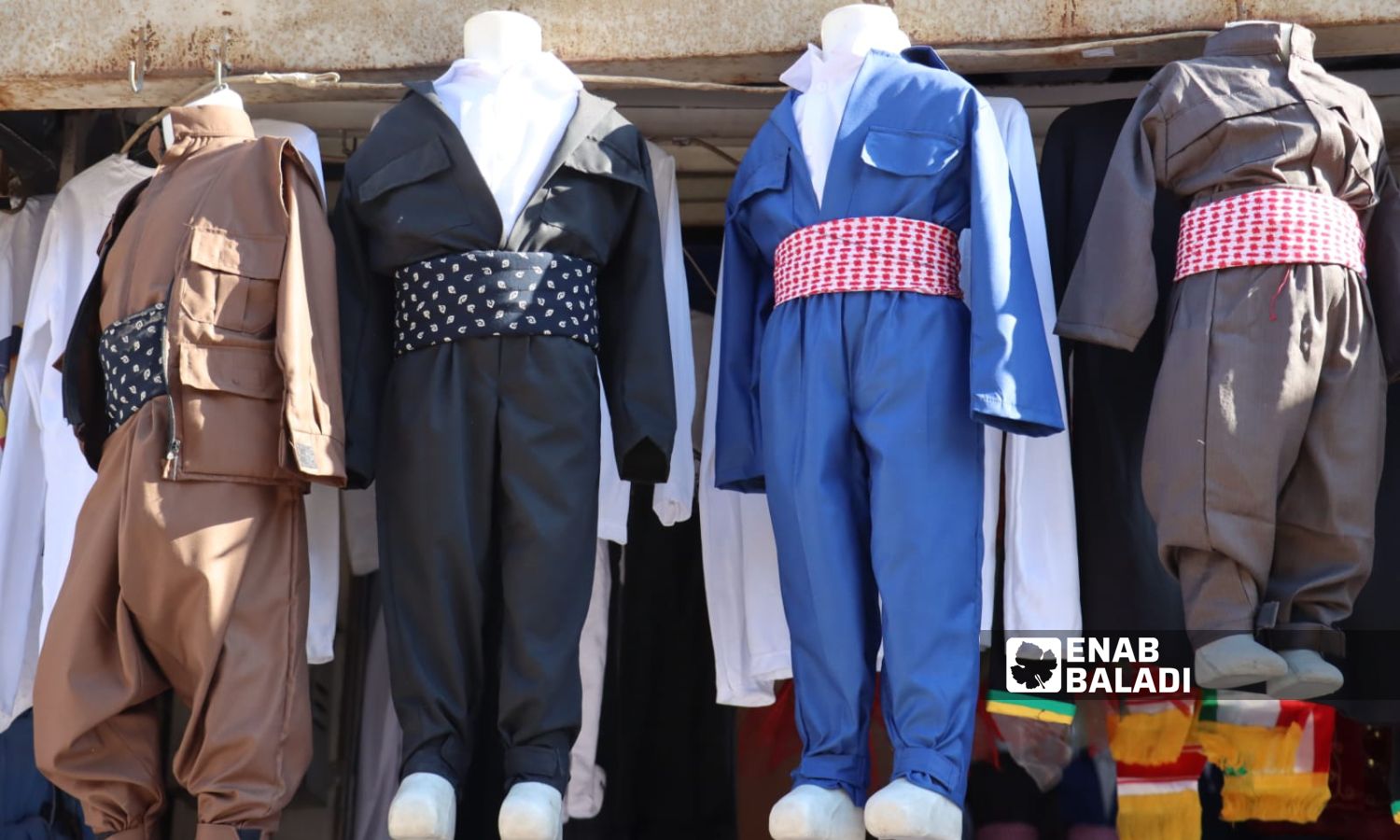
Kurdish clothes in one of Qamishli city’s shops, northeastern Syria – March 18, 2024 (Enab Baladi/Rita Ahmad)
Britan Hamandi (27 years old), a nurse at a private hospital in al-Hasakah city, told Enab Baladi that girls usually wear a new dress every Nowruz festival.
The lady, who is a mother of two (a boy and a girl), preferred to buy ready-made clothes for them instead of tailoring in order to save money, as the cost of tailoring any dress is not less than 75 US dollars, while the price of a dress and children’s clothes starts from 300,000 pounds (20 dollars) for regular quality, and 450,000 for medium quality.
She mentioned that adding some touches to her dress that was tailored in 2023 is costly because the price for accessories pieces is high, and the price of the cheapest piece is about five US dollars, while some may reach 20 US dollars. Therefore, she decided to make simple changes.
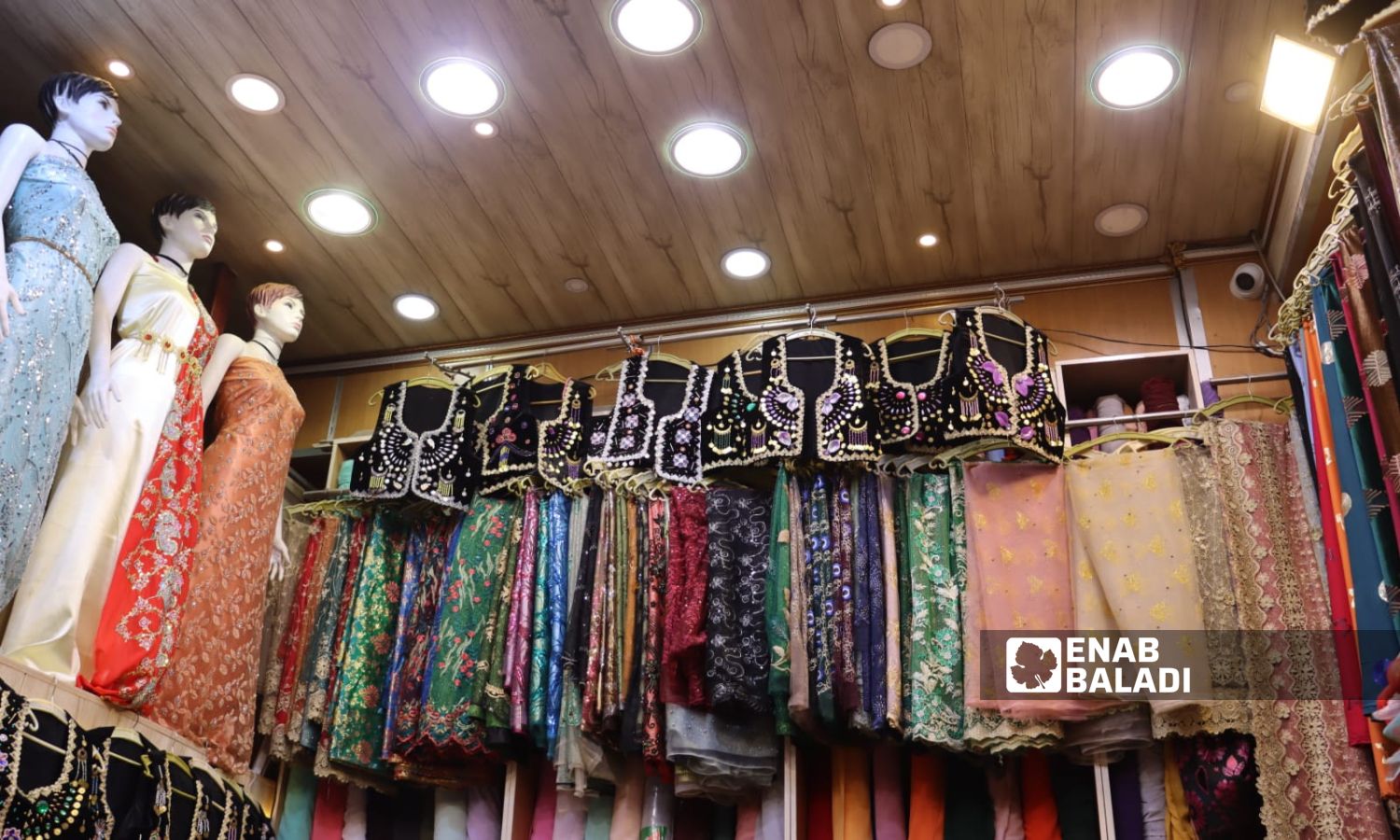
Kurdish clothes in one of Qamishli city’s shops, northeastern Syria – March 18, 2024 (Enab Baladi/Rita Ahmad)
Annually, Kurds in Syria and around the world celebrate the Nowruz festival, which is considered the beginning of the Kurdish new year. They light the Nowruz torch, go out to natural places, and the rituals include Kurdish folkloric dance, poetry reading, and singing.
Also, the United Nations celebrates on March 21 annually “The International Day of Nowruz,” to share this holiday with countries and peoples of the world, after the UN recognized this occasion as an international day in 2010, initiated by several countries including Azerbaijan, Afghanistan, Albania, Iran, Turkey, Macedonia, Tajikistan, Kyrgyzstan, Kazakhstan, and India.
The word “Nowruz” means a new day, and it is the day of the spring equinox, marking the beginning of the new year, a celebration that has been going on for more than 3000 years in Central Asia, the Balkans, the Black Sea basin, the Middle East, the Caucasus, and other regions.
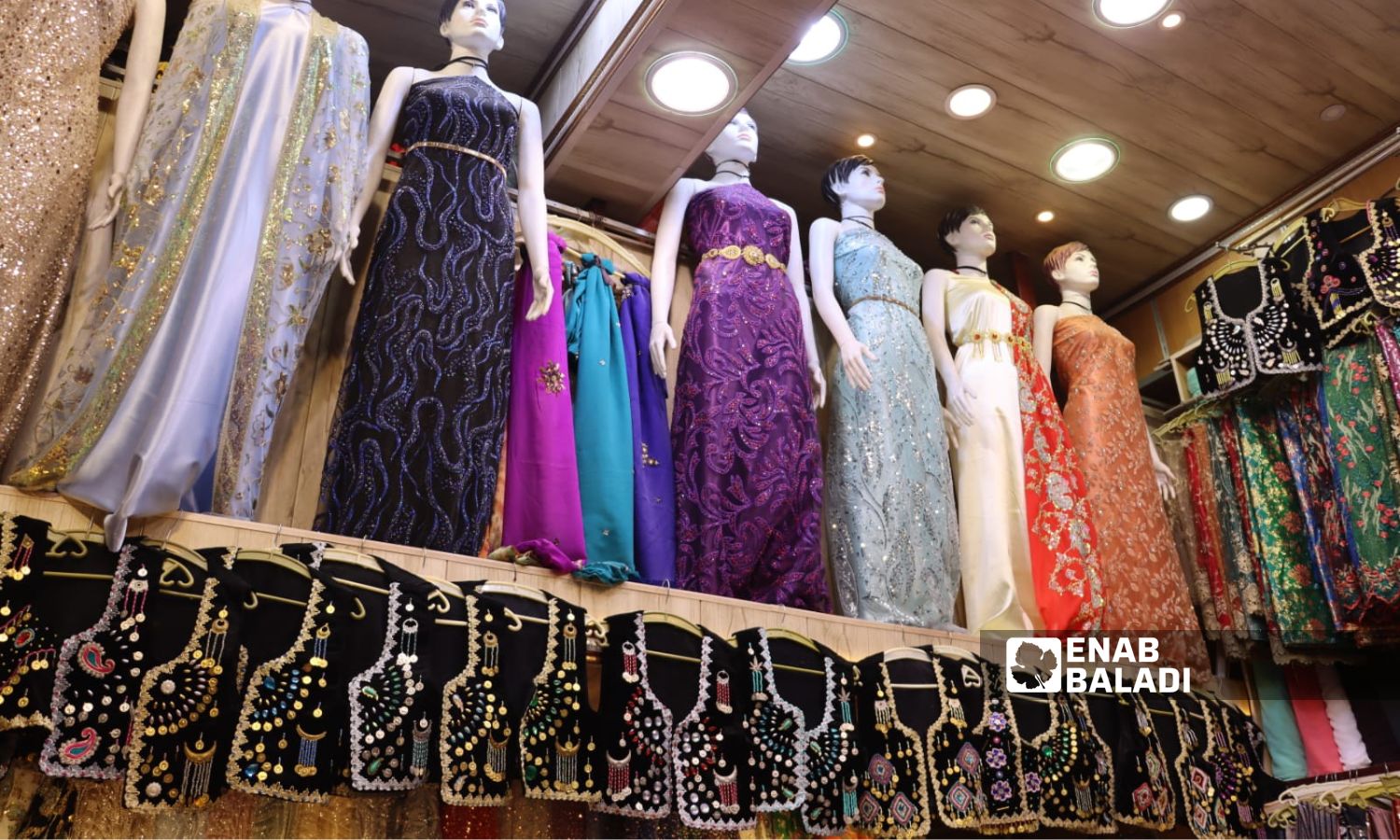
Kurdish clothes in one of Qamishli city’s shops, northeastern Syria – March 18, 2024 (Enab Baladi/Rita Ahmad)
if you think the article contain wrong information or you have additional details Send Correction